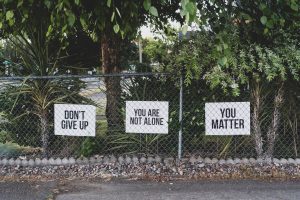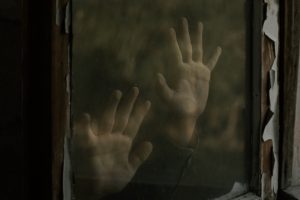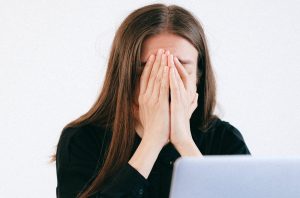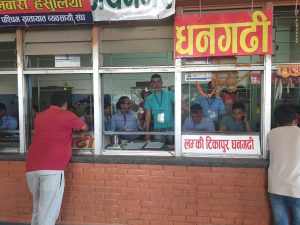On a late Sunday night, Richa [name changed] reached out to her friend. Hyperventilating, she called her friend and explained she was having an anxiety attack. Richa had been experiencing such attacks quite frequently in this lockdown overthinking and doubts regarding her career and life choices were more abundant.
Her friend advised her to seek counselling. She called a counsellor the next day and is now continuing her sessions. But, in her first session, the 23-year-old woman realised that she was not the only one.
The lockdown has been taking a toll on everyone, of every age group, say the counsellors who, of late, have been seeing a lot more cases, even more than the first round of lockdown last year. Though they do not have exact data, they say the problem still stands true, with a reportedly increasing number of cases.
Early-age dangers

Counsellors share that mental health has become a problem even among the younger population. “I counselled parents who complained that their seven-year-old has been acting unusual for a few days. They shared that the child’s eating and sleeping patterns had changed. He was more distracted and aggressive every day. The worried parents did not know what to do and sought counselling,” shares Kapil Sharma, a psychosocial counsellor and trainer.
Sharma has been practising counselling for the past two and a half years with previous experience of working as a public health professional. For him, the younger generation showing tantrums and irregular behaviours are not new. “Lately, we have been seeing a lot of cases in children like having some kind of phobias, panic attacks, fussy or even aggressive behaviour.”
Regarding the case in point, he adds, “It turned out that the child was not paying attention in his online classes when he got scolded by the father for failing to make a good impression. The child got spooked and then conscious about his behaviour. So when he fell and got injured, thinking he would be scolded, he became secretive and did not tell his parents. But, the parents found out.”
This is an example of how even the smallest things can be a trigger among the younger population to start changing their behaviours.
Psychologist and psychological counsellor Kripa Sigdel seconds the pattern of the younger population. “The subsequent lockdowns have left an impact and have also impacted the high school students. When the SEE got postponed this year too, some reported anxiety due to academic uncertainty and their career. Another part is the social media and screen time exposure, due to which they are more prone to cyberbullying, and addiction.”

Likewise, teenagers are reportedly having more toxic relationships with their girlfriends/boyfriends and even their parents or family members, she informs
In the lockdown, this age group has been busy in online classes. But, this also has created problems, says Sharma. “Not everyone was digitally apt before lockdown and not everyone is financially sound. So, when a child asks his friends how to conduct Zoom classes, he gets mocked by them for not knowing. This digital divide and lack of validation from his friends resulted in him dropping out of school.”
Multiple hats equal multiple problems
Probably the population that reports most mental health problems is the working population. Both Sharma and Sigdel confirm that the working population when cooped up at home are struggling because the lines between their professionals and personal lives have blurred.
“The workload for many working from home has not diminished. They are having to wear multiple hats while sitting on the same chair. A man is a son, a father, an employee, and a husband, but now, in the lockdown, there is no fixed time or space where his roles are defined,” says Sharma, adding he also shares the plight of one among his clients.

The plight is the same and, at some level, even more on women, especially working mothers. “The responsibility to feed the family members, taking care of them and the house, the chores have fallen on women, while she is expected to complete her professional work, without minimal or no time for self-care,” sums Sharma.
Sigdel here adds, “The time together during the lockdown was at first celebrated. But, with workload and stress, the same time has now caused misunderstandings, irritation and anger issues.” According to her, insomnia due to late work hours has also been common. Fights between partners in the same house have been very usual whereas long-distance relationships [the context includes even those in Kathmandu separated by lockdown measures] have gone through breakups or fights, she says.
A concerning issue in this age group, says Sigdel, is the hoarding mentality. Though not commonly perceived as a mental health problem, she stresses hoarding is an issue, a kind of obsessive-compulsive disorder, and a growing one at that. “In the previous lockdown, we saw the older generation hoarding supplies, mostly food and basic medical supplies. This time, we see the younger population doing the same. This age group, with the growing threat from the Covid-19 variants, are now insecure about not getting timely medical supplies, oxygen being one.”
Old but not forgotten

While the younger generation and the working population have their own problems in this lockdown, the senior citizens have not been exempt from mental health issues.
“The older generation is subjected to loneliness. They want someone to listen to them. With the lockdown, this has happened for some while for others they are tied down alone in their homes. Many have been socially isolated on top of physical isolation due to the lockdown. The double burden of old age and Covid-19’s severity in the age group is increasing depression and anxiety,” Sharma explains.
Sigdel adds, “They have the impending fear of death, not just from Covid-19. But now with the disease, they fear losing someone before they get to meet them. The detachment from the children and grandchildren are also taking a toll on them.”
So many problems, but what is the solution?

The solution the duo says is to seek out help as Richa did. “It does not need to be a counsellor or a psychologist; you can simply turn to your closest friend or a family member,” says Sigdel.
Dialogues around mental health and the need for counselling or therapy only started in yesteryears. “The dialogues spiked after the earthquake and now in the pandemic situation,” she says, “With the internet, easy access to information, dialogues and campaigns at a personal level, awareness has increased, but we are still not comfortable talking about it with our family members, or accept that our family members are suffering from mental problems.”
Sigdel suggests capitalising on personal awareness. “One can track their behaviour or any change in that. There are three factors; time, duration and intensity. Keep track of when or what triggered the change, how long the behaviours last and how strongly they feel about it. If it is harmful or extreme and it lasts more than 14 days, that might mean they have to seek help.”
They say one can also turn to friends and family to take notes of any change in behaviours.

But, to avoid the situation from getting worse, the counsellors say the best way is to communicate. “Expressive communication can sort misunderstandings, save relationships and prevent mental health problems. That is what sets families and relationships that are enjoying their time together during this lockdown,” suggests Sigdel.
Sharma adds, “Families can sit down together, allocate a time of the day to talk and express their feelings, their experiences and do it in an environment free of judgement.” One can try the same in role-playing sessions, which has been working for the family of the seven-year-old [mentioned above].
If you want to keep it rather personal, there are many hotlines available where one can talk to counsellors about your mental health as well as suicide prevention, where you can talk anonymously. Or seek out help from mental health experts for analysis, talk therapy or more professional diagnosis.
Many governmental and private organisations like Tribhuvan University Teaching Hospital, Transcultural Psychosocial Organisation Nepal (TPO Nepal), and Koshish Nepal are providing psychosocial counselling sessions. Many counsellors and private organisations are also holding online group sessions to help people. Other services include private sessions under the programmes of Human Development Center Nepal (HuDEC Nepal) which Sharma is a part of with and through online portals like Mankaa Kura, which Sigdel is associated with.



























